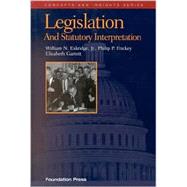| Dedication | iii | ||||
| Preface | v | ||||
| A Note on Citation Practice | vii | ||||
|
xv | ||||
|
1 | (18) | |||
|
19 | (48) | |||
|
22 | (17) | |||
|
23 | (3) | |||
|
26 | (7) | |||
|
33 | (6) | |||
|
39 | (16) | |||
|
40 | (6) | |||
|
46 | (3) | |||
|
49 | (6) | |||
|
55 | (12) | |||
|
56 | (1) | |||
|
57 | (3) | |||
|
60 | (7) | |||
|
67 | (48) | |||
|
68 | (13) | |||
|
68 | (9) | |||
|
77 | (1) | |||
|
78 | (3) | |||
|
81 | (16) | |||
|
82 | (3) | |||
|
85 | (5) | |||
|
90 | (7) | |||
|
97 | (18) | |||
|
97 | (5) | |||
|
102 | (2) | |||
|
104 | (1) | |||
|
104 | (3) | |||
|
107 | (4) | |||
|
111 | (4) | |||
|
115 | (42) | |||
|
117 | (14) | |||
|
118 | (4) | |||
|
122 | (3) | |||
|
125 | (6) | |||
|
131 | (8) | |||
|
132 | (3) | |||
|
135 | (2) | |||
|
137 | (2) | |||
|
139 | (18) | |||
|
141 | (4) | |||
|
145 | (6) | |||
|
151 | (6) | |||
|
157 | (54) | |||
|
159 | (9) | |||
|
159 | (4) | |||
|
163 | (3) | |||
|
166 | (2) | |||
|
168 | (21) | |||
|
169 | (6) | |||
|
175 | (6) | |||
|
181 | (8) | |||
|
189 | (22) | |||
|
189 | (8) | |||
|
197 | (6) | |||
|
203 | (8) | |||
|
211 | (38) | |||
|
213 | (10) | |||
|
214 | (4) | |||
|
218 | (2) | |||
|
220 | (3) | |||
|
223 | (13) | |||
|
223 | (4) | |||
|
227 | (3) | |||
|
230 | (6) | |||
|
236 | (13) | |||
|
237 | (3) | |||
|
240 | (3) | |||
|
243 | (6) | |||
|
249 | (38) | |||
|
251 | (12) | |||
|
251 | (2) | |||
|
253 | (2) | |||
|
255 | (1) | |||
|
256 | (3) | |||
|
259 | (1) | |||
|
260 | (3) | |||
|
263 | (13) | |||
|
264 | (2) | |||
|
266 | (2) | |||
|
268 | (1) | |||
|
269 | (3) | |||
|
272 | (1) | |||
|
273 | (3) | |||
|
276 | (11) | |||
|
277 | (4) | |||
|
281 | (2) | |||
|
283 | (4) | |||
|
287 | (42) | |||
|
290 | (5) | |||
|
295 | (17) | |||
|
296 | (6) | |||
|
302 | (6) | |||
|
308 | (4) | |||
|
312 | (17) | |||
|
313 | (6) | |||
|
319 | (7) | |||
|
326 | (3) | |||
|
329 | (46) | |||
|
331 | (16) | |||
|
331 | (8) | |||
|
339 | (3) | |||
|
342 | (5) | |||
|
347 | (22) | |||
|
348 | (6) | |||
|
354 | (8) | |||
|
362 | (7) | |||
|
369 | (6) | |||
| Appendix. The Rehnquist Court's Canons of Statutory Construction | 375 | (10) | |||
| Index | 385 |








